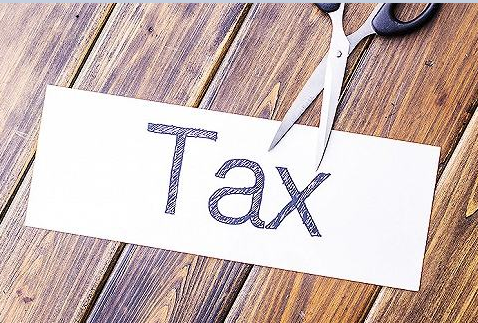Abstract: Yang Zhiyong, a research fellow at the National Academy of Economic Strategy, Chinese Academy of Social Sciences, said in his article Tax cuts will help private enterprises grow that tax cuts and reduction of fees could effectively lower enterprises' costs, and thus help promote the development of private enterprises. So, based on the private economy's actual situations, more targeted tax cut and fee reduction policies should be implemented to help private enterprises to prosper.
The full text of the article is as follows:
China has implemented positive fiscal policy this year, which is expected to reduce 1.3 trillion yuan (188.4 billion U. S. dollars) in taxes, 200 billion yuan more than planned. Tax cuts play a significant role in China's economy, and its importance has increased given the prevailing complicated economic situations at home and abroad.
China's tax cut policy has kept pace with reform. For example, at the beginning of this year, the authorities changed the three-level tax rate to a two-level rate.
Being the largest of its kind, the value-added tax cut has had remarkable effects. On the other hand, the comprehensive and classified combined individual income tax implemented on Oct 1 has lifted the tax threshold to 60,000 yuan a year, with added special deduction reducing people's individual tax burden.
The central and local tax bureaus were merged this year to better serve the taxpayers and reduce people's tax burden. But the fact that the tax authorities will start collecting social security premium from Jan 1, 2019, has aroused wide public concern on whether enterprises' actual tax and fees burden would increase. To clear public doubts, the tax authorities said measures will be taken to reduce enterprises' possible burdens.
The fate of the private economy, too, has raised wide public concern, especially because the private economy has been facing many problems, including high costs and new market challenges. Tax cuts and reduction of fees could effectively lower enterprises' costs, and thus help promote the development of private enterprises. So, based on the private economy's actual situations, more targeted tax cut and fee reduction policies should be implemented to help private enterprises to prosper.
There is little doubt that large-scale tax cuts will help more private enterprises to overcome their difficulties and boost their economic growth. But when it comes to implementing favorable tax policy, it is important that the authorities realize the significance of private enterprises in China's economy, and promote the equality principle. Their aim should be to ensure all qualified enterprises benefit from favorable tax policies in the long run.
A majority of private businesses are small and medium-sized, even micro enterprises. Therefore, the favorable tax policies targeting micro, small and medium-sized enterprises should mainly support the private enterprises' development. The private economy also comprises many hi-tech enterprises, which provide many new technologies and have even become the main contributor to technological innovation. For such enterprises, special tax deductions for R&D costs will be conducive to their development.
More effective favorable tax policies are also required for some other private enterprises. For instance, the profit many private enterprises, especially small and micro enterprises, make is quite limited. And for unprofitable enterprises, and enterprises that make a meager profit, the positive effects of special tax deductions or favorable tax rates are limited. It is therefore important to understand the importance of income tax to different private enterprises, and accordingly take measures to optimize them. In other words, favorable tax policy should be diversified to meet the demand of different categories of private enterprises while promoting their development.
True, tax cuts can directly benefit profit-making enterprises, encouraging them to intensify or expand their operations to make more profits. But the private enterprises also have other economic burdens, including administrative charges and the difficulty in getting bank loans. Hence, the fee reductions should keep pace with the tax cuts to truly promote private enterprises' development. After the ratio of value-added tax is lowered in overall taxation, relevant additional taxes and fees will be lowered accordingly, which will help promote the development of small and micro enterprises.
The tax cuts and fee reductions will inject new vitality into the private enterprises, but the private economy cannot prosper by depending only on tax cuts and fee reductions. The core competitiveness of an enterprise in the market still decides whether it will survive, develop and prosper. However, apart from making efforts to become more competitive, the private enterprises and entrepreneurs should also focus on innovation.




 A single purchase
A single purchase









